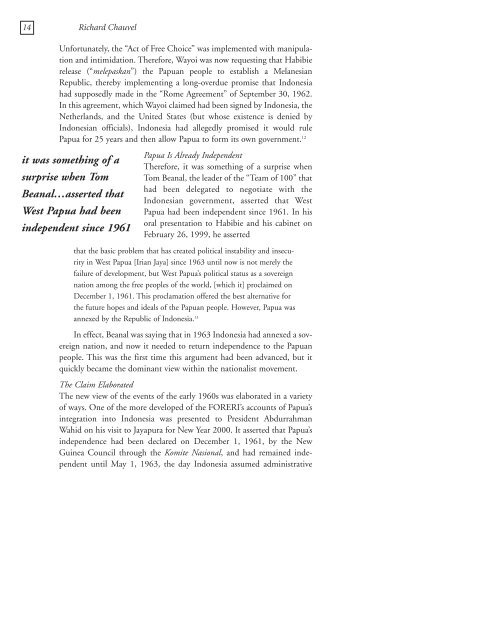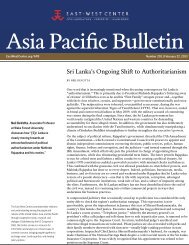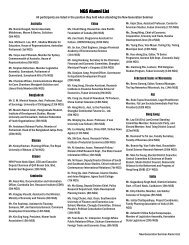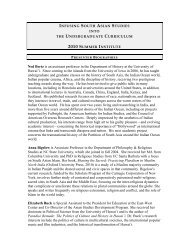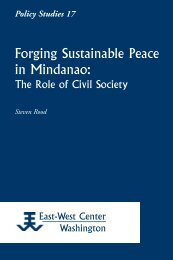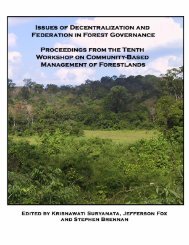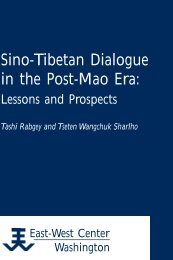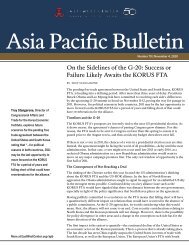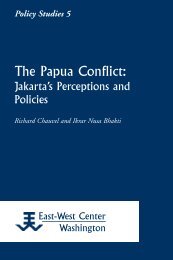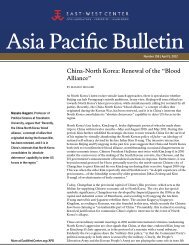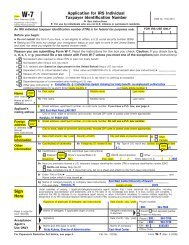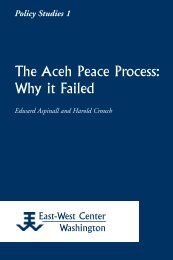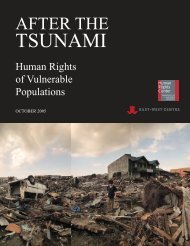Constructing Papuan Nationalism: History, Ethnicity ... - ScholarSpace
Constructing Papuan Nationalism: History, Ethnicity ... - ScholarSpace
Constructing Papuan Nationalism: History, Ethnicity ... - ScholarSpace
- No tags were found...
Create successful ePaper yourself
Turn your PDF publications into a flip-book with our unique Google optimized e-Paper software.
14 Richard ChauvelUnfortunately, the “Act of Free Choice” was implemented with manipulationand intimidation. Therefore, Wayoi was now requesting that Habibierelease (“melepaskan”) the <strong>Papuan</strong> people to establish a MelanesianRepublic, thereby implementing a long-overdue promise that Indonesiahad supposedly made in the “Rome Agreement” of September 30, 1962.In this agreement, which Wayoi claimed had been signed by Indonesia, theNetherlands, and the United States (but whose existence is denied byIndonesian officials), Indonesia had allegedly promised it would rulePapua for 25 years and then allow Papua to form its own government. 12it was something of asurprise when TomBeanal…asserted thatWest Papua had beenindependent since 1961Papua Is Already IndependentTherefore, it was something of a surprise whenTom Beanal, the leader of the “Team of 100” thathad been delegated to negotiate with theIndonesian government, asserted that WestPapua had been independent since 1961. In hisoral presentation to Habibie and his cabinet onFebruary 26, 1999, he assertedthat the basic problem that has created political instability and insecurityin West Papua [Irian Jaya] since 1963 until now is not merely thefailure of development, but West Papua’s political status as a sovereignnation among the free peoples of the world, [which it] proclaimed onDecember 1, 1961. This proclamation offered the best alternative forthe future hopes and ideals of the <strong>Papuan</strong> people. However, Papua wasannexed by the Republic of Indonesia. 13In effect, Beanal was saying that in 1963 Indonesia had annexed a sovereignnation, and now it needed to return independence to the <strong>Papuan</strong>people. This was the first time this argument had been advanced, but itquickly became the dominant view within the nationalist movement.The Claim ElaboratedThe new view of the events of the early 1960s was elaborated in a varietyof ways. One of the more developed of the FORERI’s accounts of Papua’sintegration into Indonesia was presented to President AbdurrahmanWahid on his visit to Jayapura for New Year 2000. It asserted that Papua’sindependence had been declared on December 1, 1961, by the NewGuinea Council through the Komite Nasional, and had remained independentuntil May 1, 1963, the day Indonesia assumed administrative


